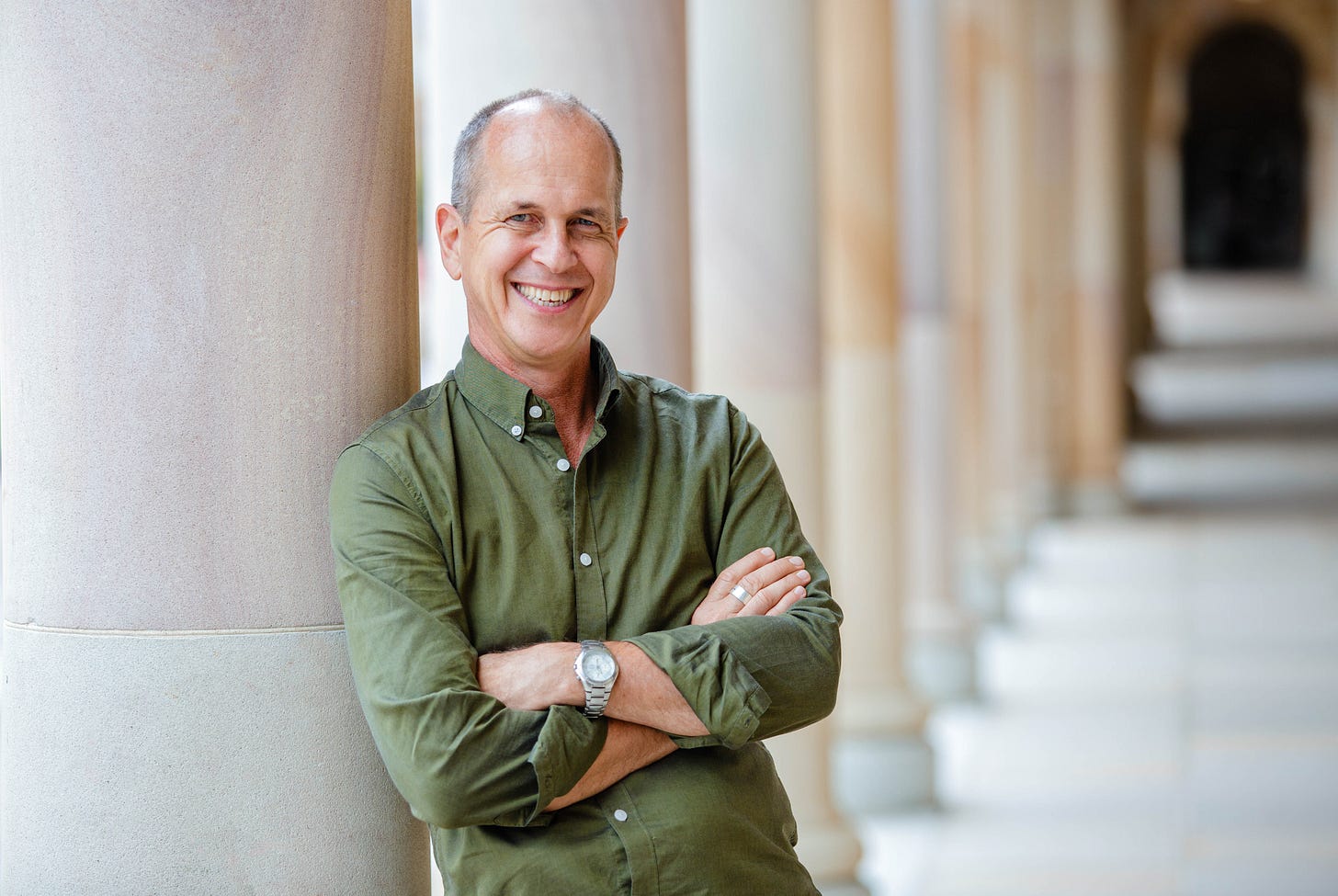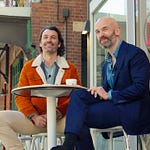Welcome to an audio-led edition of Unmade.
Today’s edition features journalist and press freedom advocate Peter Greste, who became a global figure of attention in 2014 when he was held captive by Egyptian authorities for more than a year on baseless terrorism accusations.
Further down, a bloody day on the Unmade Index sees a wipeout for The Market Herald and a 12% slump for ARN Media.
The only way to access Unmade’s full archive, and our weekly Tuesdata analysis, is as a paying member. Unmade members also get discounted tickets to our events, including Re:Made, our event on retail media.
Why Peter Greste is chasing a media freedom law
Peter Greste wears many hats - former foreign correspondent, journalist, academic, activist, press freedom advocate and author. He was hailed as an icon for press freedom around the world when he and two Al Jazeera colleagues were imprisoned in Egypt on bogus charges.
Along with a journalism teaching role at Sydney’s Macquarie University, his mission now is to bolster journalism in Australia through his role as executive director of the Alliance for Journalists’ Freedom.
In conversation with Unmade’s Tim Burrowes and Seja Al Zaidi, Greste discusses Australia’s lack of a fully democratic press, how he coped with being locked in a claustrophobic Cairo prison cell, the foibles of the Australian Press Council, AI’s impact on journalism and why he believes would-be journalists should not focus on the craft at university.
“Superficially, I think that our press is reasonably free. If you scratch beneath the surface, what you realise is that Australia has some of the most restrictive legislation on earth when it comes to media freedom,” Greste says.
“We are the only country in the democratic world that doesn't have press freedom or freedom of speech written into its constitution in any meaningful sense. It's implied in our constitution through what's called the implied right of political communication, but even that is contested. So without any local, domestic equivalent of the American First Amendment, which guarantees press freedom and freedom of speech, what we've seen is all sorts of national security legislation that both directly and indirectly intrudes on the ability of journalists to do their jobs. It criminalises a lot of otherwise perfectly legitimate journalistic investigation.”
The Alliance for Journalists Freedom was founded by Greste, communications consultant and former journalist Peter Wilkinson, and lawyer Chris Flynn with the aim of a Media Freedom Act to better protect reporting in Australia. The Alliance recently received a $500,000 donation via independent outlet Crikey following its victorious defamation defence against Lachlan Murdoch.
“What our Media Freedom Act would do is inject a positive obligation to consider media freedom at every stage of the judicial process and the bureaucratic process,” he says.
“What we've done is written a clause that says that if you are producing journalism according to a set of professional standards, then you deserve the right to be assumed by the courts to deserve protection in law, and that it's up to the investigating agencies, whether it's ASIO or the Australian Federal Police or any other of the agencies, to show the courts why you have failed in your obligation to live up to professional standards.”
Greste, a part-time professor of journalism at Sydney’s Macquarie University, also expressed concerns about the pace of evolution the media industry is experiencing compared to changes to what is being taught to undergraduate students.
“The craft skills that you need are changing so quickly that those skills are best left to the news organisations themselves. In my view, what's more important are the critical thinking skills, the literacy skills, the civic education, the understanding of politics, the understanding of the way the law works, the way the courts work,” he says.
“It's the ability to critically think about stories and analyse them and place them in context in Australian politics and society. That's what makes good journalists. Everything else is window dressing.”
A red, red day on the Unmade Index
Seja Al Zaidi writes:
The Unmade Index dropped down to the low 600s yesterday after experiencing a 2.69% drop. Almost every stock on the Index fell in share price. A sizeable fall on the ASX 200 and NASDAQ overnight was replicated among the media and marketing stocks.
The Market Herald had the largest fall - losing14% in share price, taking it to its lowest point since it recapitalised to buy Gumtree, Carsguide and Autotrader.
ARN Media wasn’t far behind with a hefty 12% fall.
Seven West Media lost 6.56%, taking it to its lowest point since 2020.
Ooh Media lost 5.04%.
B2B mining publisher Aspermont saw a 9.09% tumble, and communications holding group Enero fell 7.10%.
Time to leave you to your Thursday. We’ll be back with an end of week update tomorrow.
Audio production was courtesy of Abe’s Audio, the people to talk to about voiceovers, sound design and podcast production.
Message us: letters@unmade.media
Have a great day.



















